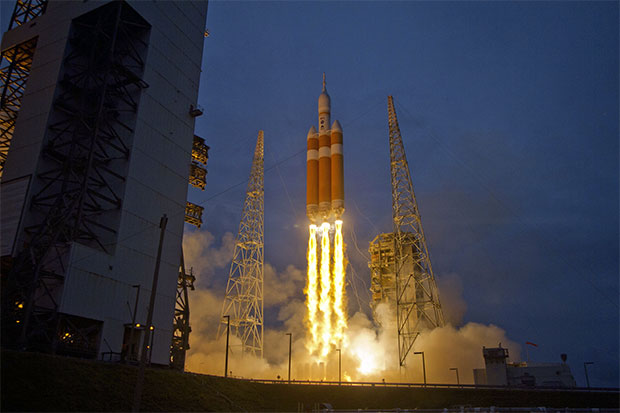NASA's Orion Spacecraft Blasts Off Following Yesterday's Delay
Following a day of delays that temporarily grounded the project, NASA this morning launched its Orion spacecraft from Cape Canaveral, Florida this morning. This is a test run for the crewless spacecraft, which lifted off the ground without issue and is now "flying comfortably through space," according to NASA's blog.
Orion is now orbiting above Earth at a low altitude before the United Launch Alliance's Delta IV Heavy rocket sends the spacecraft higher into space. If all goes to plan, Orion will fly 3,600 miles high before returning to Earth -- it's scheduled to splash down into the Pacific Ocean at around 11:29 AM EST.

Liftoff didn't come easy. Orion was originally scheduled to conduct its first test flight yesterday morning, but several issues popped up during its launch window that prevented it from happening. It was initially halted because a boat had sailed too close, and later a gust of wind forced what NASA hoped would be a temporary abort. However, things came to a grinding halt when the spacecraft's fuel valve didn't function properly, ultimately forcing NASA to reschedule the test flight for today.
There's a lot of excitement surrounding Orion, as it opens up deep space exploration and will eventually take astronauts to places no human has ever been, including Mars and even landing on a near-Earth asteroid.
"I would describe it as the beginning of the Mars era," NASA Administrator Charles Bolden said.
Not since the Apollo 17 moon mission in 1972 has NASA sent a spacecraft intended to carry humans beyond Earth's low orbit. However, there are still tests that need to be run before a crew will reach deep space -- missions are tentatively planned for the 2020s and 2030s.

